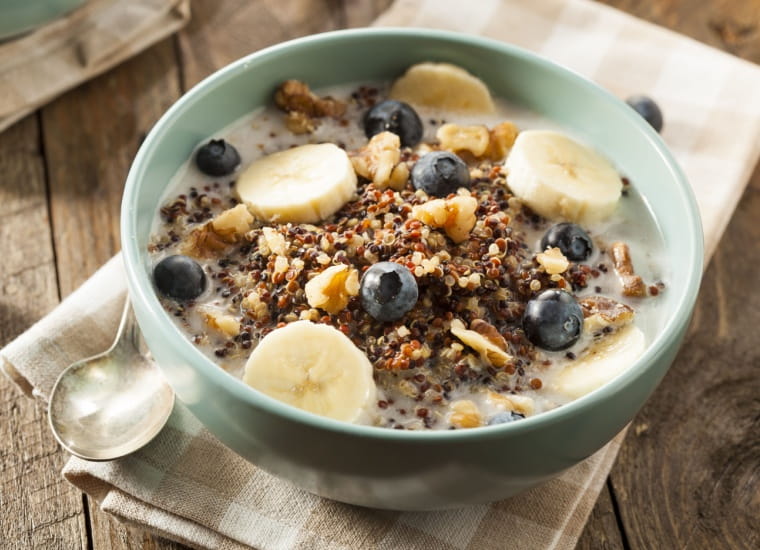Egg Prices Soaring? Try These High-Protein Breakfast Swaps You'll Love

Eggs have long been a breakfast staple, but their recent price spike can feel like it’s cracking budgets. Whether due to price fluctuations, dietary preferences, or simply wanting variety, many people are looking for protein-packed alternatives. The good news? Plenty of other foods offer just as much—or more—protein than an egg, which typically contains about six grams of protein.
"Protein is essential for keeping you full and energized throughout the day," said Kim Boggs, RD, LDN, a registered dietitian and supervisor at Mease Countryside Hospital. "Fortunately, there are many nutrient-dense options beyond eggs that can provide the protein your body needs."
Here are a few high-protein swaps to power your morning:
Greek Yogurt (15-20 g per serving) – Packed with protein and probiotics, a bowl of Greek yogurt paired with nuts and fruit is a satisfying, nutrient-rich start to the day.
Cottage Cheese (14 g per ½ cup) – A protein powerhouse that’s great on its own, cottage cheese also pairs well with berries, honey or even savory toppings like avocado.
Chia Seeds (10 g per 2 tbsp) – These tiny superfoods are loaded with protein, fiber and omega-3s. Mix them into a smoothie or make overnight chia pudding.
Nut Butter (8 g per 2 tbsp) – Spread peanut, almond or cashew butter on whole-grain toast for a quick and tasty protein boost.
Lentils (9 g per ½ cup, cooked) – Who says lentils are just for dinner? Add them to an egg-free breakfast scramble or a savory grain bowl.
Protein Pancakes or Smoothies – Using protein powder, oats or cottage cheese in pancakes or smoothies can give you a morning protein boost without relying on eggs. Protein shakes are also a great on-the-go option.
"A well-balanced breakfast should include protein, fiber and healthy fats to keep you full and prevent mid-morning cravings," added Boggs. "Swapping eggs for options like Greek yogurt, cottage cheese or chia seeds ensures you’re still getting high-quality protein."
How Much Protein Do You Need Per Day?
According to the U.S. Food and Drug Administration (FDA), the Daily Value (DV) for protein is 50 grams per day based on a 2,000-calorie diet. However, individual needs vary depending on age, activity level, and health goals.
“Most people should aim for 10-35% of their daily calories from protein,” said Boggs. “Spreading protein intake throughout the day—especially at breakfast—can help maintain energy and muscle health.”
Easy Egg Alternatives for Cooking and Baking
If you're skipping eggs in recipes, there are plenty of simple swaps that keep your meals delicious and nutritious:
For Baking: Use mashed bananas, unsweetened applesauce or ground flaxseeds mixed with water to maintain moisture and structure in cakes, muffins and pancakes.
For Savory Dishes: Silken tofu, chickpea flour or store-bought egg substitutes work well in scrambles, quiches and even breakfast burritos.
"Keep in mind that while eggs are an excellent source of lutein and zeaxanthin, which support eye health, many alternatives don’t provide these antioxidants," noted Boggs. "However, they still offer great protein and other essential nutrients, making them excellent options for variety in your diet."
Bottom Line? You Don’t Need Eggs to Get Your Protein Fix
Eggs are a great source of nutrition, but they’re not the only way to fuel your mornings. Whether you're trying to cut costs, explore new flavors, or follow a specific diet, these protein-rich alternatives will keep you full, satisfied and ready to take on the day!
Looking for more ways to eat well and stay healthy? The BayCare Nutrition Kitchen offers a wealth of health and wellness resources—from nutritious recipes and cooking videos to expert tips, classes, and podcasts designed to help you make informed food choices.
